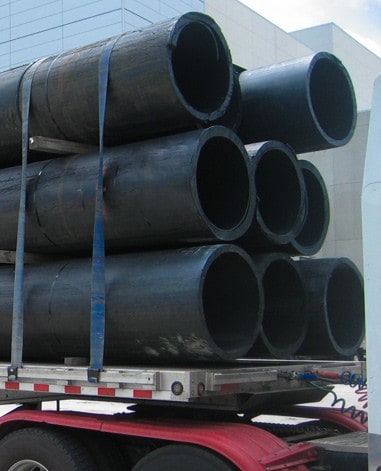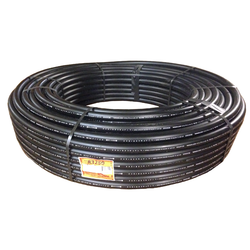How American Plastics LLC Midland Supports Large-Scale Industrial Piping Projects
Wiki Article
Discover the most effective Options for Your Following Task With Quality Pipeline Supplies
Choosing the appropriate pipeline supplies is necessary for any kind of task. It involves comprehending various materials and their certain applications. Quality plays a crucial function in efficiency and durability. Aspects such as compatibility, accessibility, and cost likewise require factor to consider. Making informed selections can considerably impact the outcome of a project. What are the finest alternatives to discover, and just how can one ensure they are making the right decisions?Comprehending Various Types of Pipeline
When starting on a pipe or construction project, recognizing the numerous kinds of pipes available is vital. Various materials serve distinct objectives, making it essential to choose the right type for details applications. PVC pipelines, recognized for their corrosion-resistant and light-weight residential or commercial properties, are commonly made use of for water drainage and irrigation. Alternatively, copper pipelines provide resilience and outstanding thermal conductivity, usually liked for supply of water lines. For gas distribution, black iron pipes are a standard selection due to their toughness and resistance to high pressure. Furthermore, PEX (cross-linked polyethylene) pipelines have actually obtained popularity for their adaptability and convenience of setup, particularly in domestic plumbing. Each pipeline kind has one-of-a-kind attributes that influence its performance and suitability for numerous settings. Experience with these options aids assure that tasks fulfill safety standards and practical demands, inevitably adding to the success of any kind of pipes or construction endeavor.Secret Variables to Take Into Consideration When Picking Pipe Supplies
Selecting the appropriate pipeline products requires careful factor to consider of a number of key elements that can significantly impact the project's result. The details application of the pipes need to be assessed; different jobs might call for differing levels of resistance, flexibility, and durability to temperature level or stress. Next, compatibility with existing systems should be assessed to assist in smooth assimilation and prevent future problems.Expense is one more substantial aspect; budget restrictions may determine the selection of materials and vendors. Furthermore, the accessibility of materials can affect the timeline of the project, making it vital to choose readily offered choices.
High quality should not be overlooked, as substandard products can bring about issues and increased upkeep costs. Finally, neighborhood building ordinance and policies should be taken into consideration to verify conformity and security criteria. By considering these elements, individuals can make informed decisions that enhance the success of their projects.

Comparing Products: PVC, Copper, and PEX
Picking the appropriate materials for pipeline supplies is necessary for making sure a job's success, and three prominent choices usually taken into consideration are PVC, copper, and PEX. PVC (polyvinyl chloride) is light-weight, immune to corrosion, and cost-effective, making it suitable for numerous applications, particularly in water drainage and watering systems (American Plastics LLC HDPE Pipe Supplier). Nevertheless, it can be much less resilient under extreme temperaturesCopper pipelines are renowned for their durability and reliability, using exceptional thermal conductivity and resistance to germs. Although much more pricey than PVC, their sturdiness typically validates the investment for plumbing applications.

Applications for Different Pipeline Kind
Comprehending the special applications of different pipe kinds is crucial for enhancing task end results. PVC pipes are commonly utilized in drain, waste, and air vent systems due to their resilience and resistance to corrosion. Their lightweight nature makes them easy to install and deal with. Copper pipelines, known for their reliability and durability, are typically utilized in pipes click for more info and heating systems. Their capability to endure high temperatures makes them ideal for hot water lines. PEX pipelines, with their adaptability and resistance to freezing, are perfect for household pipes applications, enabling less complicated setup in tight spaces. Additionally, stainless-steel pipes are frequently used in industrial settings where high pressure and temperature level resistance are required. Each pipe type serves specific functions, and recognizing these applications assists in making notified choices for numerous tasks, making certain performance and effectiveness.The Relevance of Quality in Pipeline Materials
Top quality in pipeline materials directly impacts the success of different jobs, affecting both performance and long life. High-grade pipes stand up to deterioration, withstand stress, and maintain architectural integrity with time, making them crucial for guaranteeing security and performance in plumbing, building and construction, and industrial applications. Substandard products can bring about leaks, failings, and expensive repair services, eventually endangering task timelines and budget plans.In addition, quality pipelines improve the total performance of systems, whether they are transferring water, gas, or other products. They add to optimal circulation prices and reduce the danger of contamination, which is especially important in drinkable water supply. Spending in top quality pipe provides not only satisfies governing standards yet likewise supports sustainability by lessening waste via durable efficiency. As an outcome, selecting trustworthy distributors that focus on quality can significantly affect the durability and dependability of any kind of project, establishing a solid foundation for future procedures.
Tips for Maintaining Your Pipes
Normal upkeep is crucial for preserving the stability and capability of pipes in any system. To ensure peak efficiency, one reliable strategy is to perform routine assessments, inspecting for indications of wear, corrosion, or leakages. Maintaining pipes cost-free and clean from particles can prevent obstructions, which commonly lead to press accumulation and prospective ruptures. It is also advisable to keep track of water high quality, as impurities can damage pipe products gradually.In addition, keeping proper temperature level degrees is necessary; severe changes can trigger products to expand or agreement, resulting in cracks. For systems with exterior piping, protecting pipes versus winter can stop cold and subsequent ruptureds. Ultimately, documenting upkeep activities and repair services assists track the problem of the pipes and aids in future planning. By following these tips, people can substantially extend the lifespan of their piping systems, assuring dependable procedure for several years to find.

Where to Find Dependable Pipe Suppliers
Keeping pipelines successfully usually starts with sourcing materials from reliable distributors. Trusted pipeline providers can be located via different networks, including online directory sites, trade shows, and industry associations. On the internet platforms like Alibaba, ThomasNet, and neighborhood company directory sites offer comprehensive checklists of providers with customer find out here evaluations and ratings, assisting purchasers examine high quality and dependability.In addition, seeing trade convention permits direct interaction with distributors, making it possible for task stakeholders to evaluate products firsthand. Networking within sector associations can also bring about important recommendations, as experts often share their experiences with various vendors.
Regional equipment shops and plumbing supply stores are superb resources, especially for those looking for immediate assistance. It's vital to ask about warranties and accreditations, ensuring that vendors stick to industry criteria. By exploring these avenues, individuals can identify dependable pipeline providers that satisfy their job's certain needs.
Regularly Asked Concerns
What Are the Typical Dimensions Available for Different Pipe Types?
Typical pipe dimensions vary by type; for example, PVC pipelines usually are available in 1/2", 3/4", and 1" diameters, while steel pipes may vary from 1/8" to 36". Option depends on details application requirements.Just how Do I Know if My Pipes Are Effectively Installed?
To determine if pipelines are effectively set up, one ought to look for protected fittings, appropriate alignment, and lack of leakages - American Plastics Company. Additionally, seeking advice from installation standards and looking for professional examination can ensure adherence to safety and security and functionality standardsCan I Mix Different Pipeline Products in One System?
Mixing various pipe materials in one system is normally not recommended due to prospective compatibility problems, such as varying thermal growth rates and chain reactions. Correct installations and adapters might minimize some threats, yet caution is recommended.What Safety and security Preventative Measures Should I Take When Working With Pipelines?
When collaborating with pipes, one ought to put on security goggles, handwear covers, and ideal garments. Confirm proper air flow, use tools appropriately, handle products very carefully, and follow producer directions to avoid crashes and injuries throughout setup or fixings.Exist Eco-Friendly Pipeline Options Available on the Market?
Yes, environment-friendly pipe choices are available, including those made from recycled materials, naturally degradable plastics, and sustainably sourced timber. These alternatives minimize environmental influence while providing viable solutions for different construction and plumbing jobs.The certain application of the pipelines must be evaluated; various jobs may require varying degrees of flexibility, resistance, and durability to temperature or stress. Picking the proper products for pipeline materials is crucial for making certain a project's success, and three prominent alternatives typically taken into consideration are PVC, copper, and PEX. Recognizing the distinct applications of different pipe types is essential for optimizing project end results. Quality in pipe supplies directly affects the success of different jobs, influencing both performance imp source and durability. Usual pipe sizes vary by kind; for example, PVC pipelines usually come in 1/2", 3/4", and 1" sizes, while steel pipes might vary from 1/8" to 36".
Report this wiki page